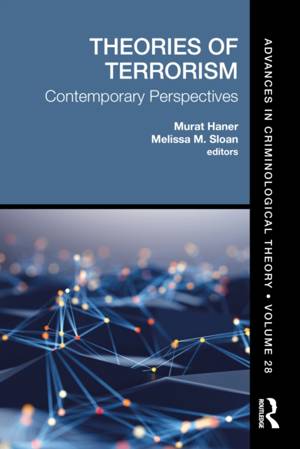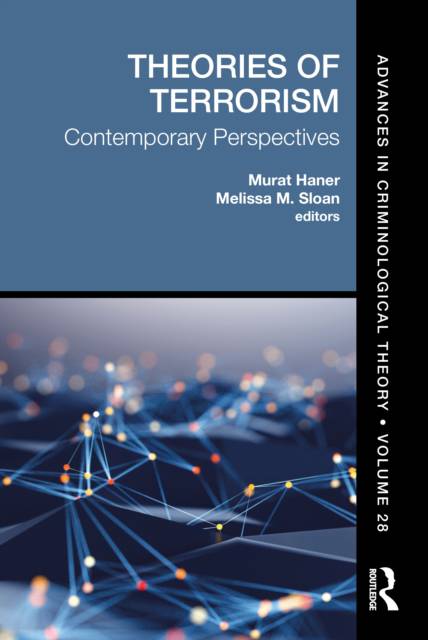
- Retrait gratuit dans votre magasin Club
- 7.000.000 titres dans notre catalogue
- Payer en toute sécurité
- Toujours un magasin près de chez vous
- Retrait gratuit dans votre magasin Club
- 7.000.000 titres dans notre catalogue
- Payer en toute sécurité
- Toujours un magasin près de chez vous
Theories of Terrorism
Contemporary Perspectives
Description
Theories of Terrorism
explains and advances the major theories of terrorism that address issues of becoming a terrorist, being a terrorist, and leaving terrorism, in a clear and accessible format.Readers will gain an understanding of the most promising explanations of terrorism that have been developed to date and how they can be used to explore core substantive issues related to the topic. The content is delivered with a scholarly depth, though still accessible by students at different levels. The book offers explanations from prominent scholars for the three phases of radicalization, covering emerging topics such as women's involvement in terrorism, fear of terrorism, the code of the terrorist, and suicide terrorism. This is the first book in the Advances in Criminological Theory series to address the issue of terrorism and emphasizes the use of theory to direct research development in the future.
The style and content coverage of the book make it appropriate as a supplemental text in undergraduate courses on terrorism and political violence. The inclusion of current empirical literature and guidance for future research efforts gives the text appeal for graduate students and academics in the disciplines of criminology/criminal justice, political science, sociology, and interdisciplinary terrorism studies. The emphasis on theory and the radicalization process throughout the text will also make the book useful as a reference for general graduate-level theory courses within these areas.
Spécifications
Parties prenantes
- Editeur:
Contenu
- Nombre de pages :
- 396
- Langue:
- Anglais
- Collection :
- Tome:
- n° 28
Caractéristiques
- EAN:
- 9780367457617
- Date de parution :
- 10-11-21
- Format:
- Livre relié
- Format numérique:
- Genaaid
- Dimensions :
- 152 mm x 229 mm
- Poids :
- 698 g






